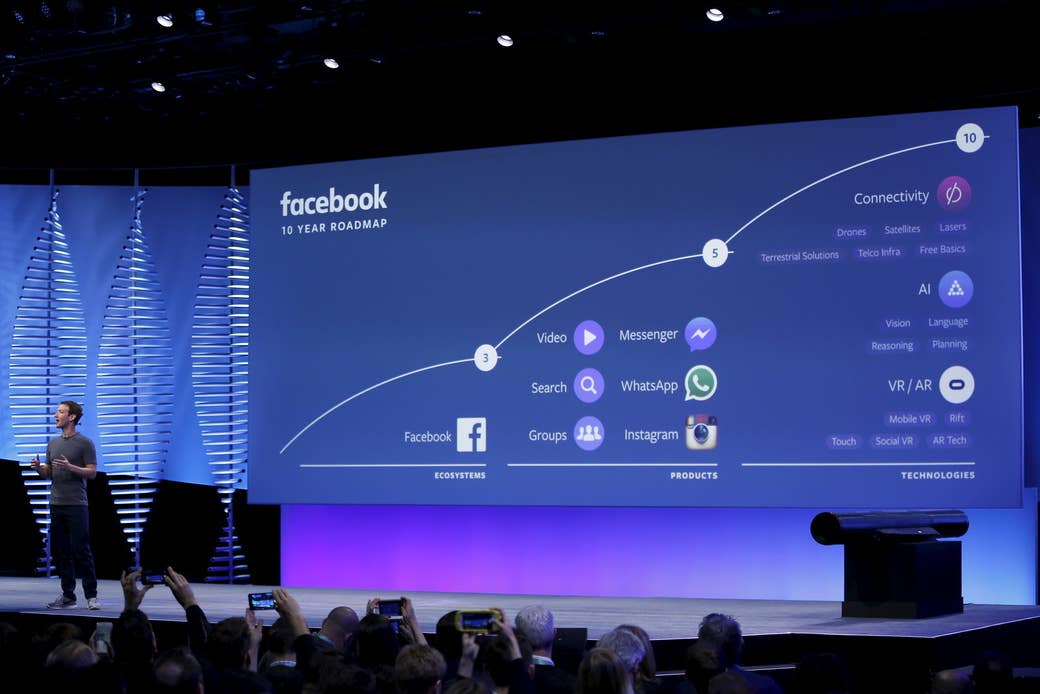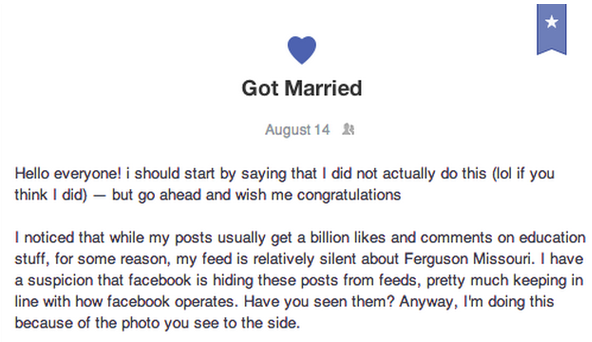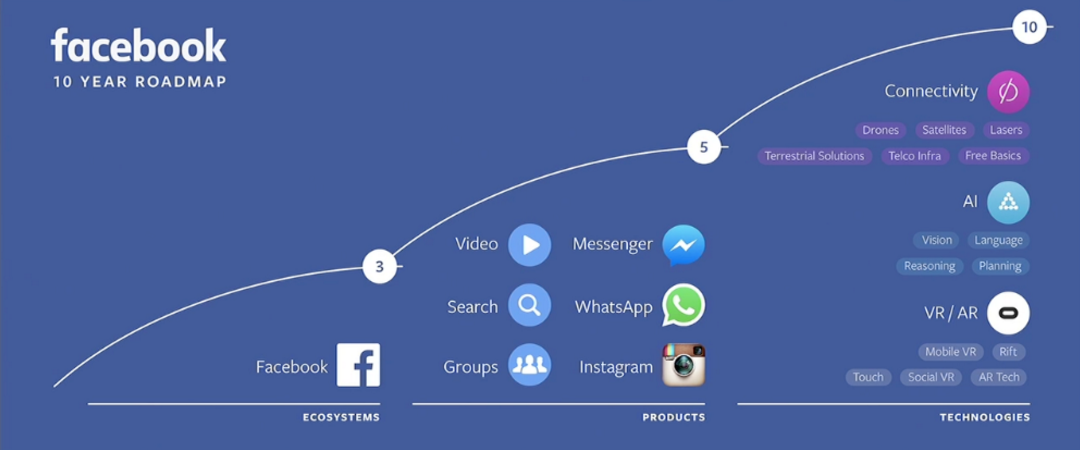
In a turbulent week that’s been largely defined by a controversial vote, Facebook just issued its own referendum on news in its News Feed. Put simply, the users have spoken and news lost.
This morning, Facebook VP of product management Adam Mosseri announced that the social network is tweaking its News Feed algorithm to show more stories from friends and family members — a move that indicates Facebook is worried professional publishers are crowding out the normal people in your life you care about. The decision, according to the post, is based on “research,” which is a way to say that Facebook has been listening to the myriad signals of the real people who use its platform each day.
With 1.65 billion active humans using the platform, Facebook is among the largest, most responsive focus groups of its kind. It's a formidable tool for studying human behavior. Every day legions of regular people across the world signal their preferences — voting with their News Feeds —in the form of likes, shares, comments, and friending/following/unfriending to Facebook’s data mothership, which collects these inputs with the utmost interest to inform the evolution of its products, like News Feed. A decision to tweak News Feed away from news is, in many ways, a reflection of the Facebook constituency’s attitude toward the news it sees.
When News Feed failed almost two years ago to reflect the centrality of Michael Brown’s murder and Ferguson's protests in our national conversation, Facebook took heat for simultaneously serving up an endless buffet of algorithmically delicious Ice Bucket Challenge videos. This would’ve been fine — Facebook is a social network, not a cable news network, after all — except that the company had become a major news destination, and made considerable, very public efforts and investments to ramp up its news capabilities. Simply put: Facebook indicated it wanted to be the internet’s best destination for news, but its mechanism for delivering news is designed to do almost the exact opposite: give you what you already want.
Despite hiring trending news curators, working with publishers, and paying them to create live content (BuzzFeed is a partner) hosting their articles, Facebook is still hampered by News Feed’s algorithmic design. I wrote during the Ferguson protests that “if your friends don’t interact with the news, by either commenting or liking it, you’re less likely to see it, meaning that a decent part of the reason people aren’t seeing a glut of Ferguson coverage is that people don’t want to see it. Or that they don’t care. Or that they’re sending some other signal that Facebook takes to mean that the story is undermining their user experience.” It’s why some concerned Facebookers took to disguising Ferguson news inside big life updates like marriage announcements, which act as engagement candy and are usually promoted to the top of News Feeds.

Today, little is different. Sharing things that are incendiary to others in your network could cause them to ignore, block, unfriend, or in some way disengage with your content, which is Facebook’s ultimate signal that you’re having a subpar experience. That and people don’t “like” bad news. As Mosseri said today in Facebook’s announcement, “If the ranking is off, people don’t engage, and leave dissatisfied.” It’s clear as day.
Looking at Facebook’s recent strategy, this all makes perfect sense. Facebook’s last two developers conferences revealed a company that’s positioned itself to slowly inject itself into every facet of your life until it becomes the entire internet, largely via its Messenger app. But Messenger is only marginally a news platform and much more of a life layer — a place for your friends and your favorite apps and for making plans at a restaurant on the fly and hailing an Uber and then splitting the bill and then buying movie tickets for the group, all without ever leaving Facebook’s ecosystem. At its heart, Messenger is a budding commerce machine in which there’s very little room for news. Take another look at Facebook’s deeply ambitious 10-year plan, delivered this year by CEO Mark Zuckerberg, and you’ll see something is missing:

News is complicated: It can entertain, it can delight, it can enrage and dismay. Facebook’s argument is likely that person-to-person sharing is the strongest and that publishers should focus on making better, richer, unique content. This is good advice! And perhaps Facebook sees it as part of their mission to tweak the knobs until publishers stop churning out so much fluff.
But, as with Ferguson, the argument is also naive. News — especially when an outlet is going for comprehensive coverage — is not always uplifting, engaging. Nor is it always eminently sharable (Hi, net neutrality!). More importantly, media operations publishing at internet-sized scale must often produce news stories in bulk to make it worth their while financially — few publications have the luxury of moving away from scale.
Facebook has made a commitment to deliver news, but only in a manner that doesn't truly interfere with the overall experience. The central tension with news — giving you what you want to see versus giving you what you need to see — is an intractable one, especially since the former is the foundation on which the world's biggest social network is based.
Today’s announcement from Facebook is full of all kinds of night sweat–inducing details for publishers. It’s a devastating neg on the publishing world, the latest in what’s come to feel like an increasingly anxious courtship: Your business lives or dies with us. Rest assured, you'll always be our secondary consideration!
Which is not to excuse Facebook for its mercurial approach to news and for a stance that may have led publishers to feel they have an overly important role in the company’s ecosystem. Facebook, through a combination of investment, publicity, and luck has become a primary news source for a generation at a time when the public opinion of the media is at an all-time low, which all serves to make today’s announcement even thornier. Here, for example, is the reaction from Facebook’s former head of news partnerships:
Forget impact on the media biz: Facebook is where 44% of Americans get their news. What happens to that now? https://t.co/H1FQW8poXs
But the most dispiriting truth Facebook shared this morning probably comes from its users, who’ve been put in a system that essentially forces them to vote on everything that crosses their screen with their attention.
It’s a 1.65 billion vote referendum on the last few years of frantic publisher scrambling to reach audiences wherever they are (Facebook) and do it harder/better/faster/however the hell people want it. After years of wooing publishers to their platform with all manner of instant articles and content creation incentives, Facebook asked the world’s largest, most responsive voting body what it wanted to see on News Feed. Put simply, the people have spoken and news appears to have lost.
